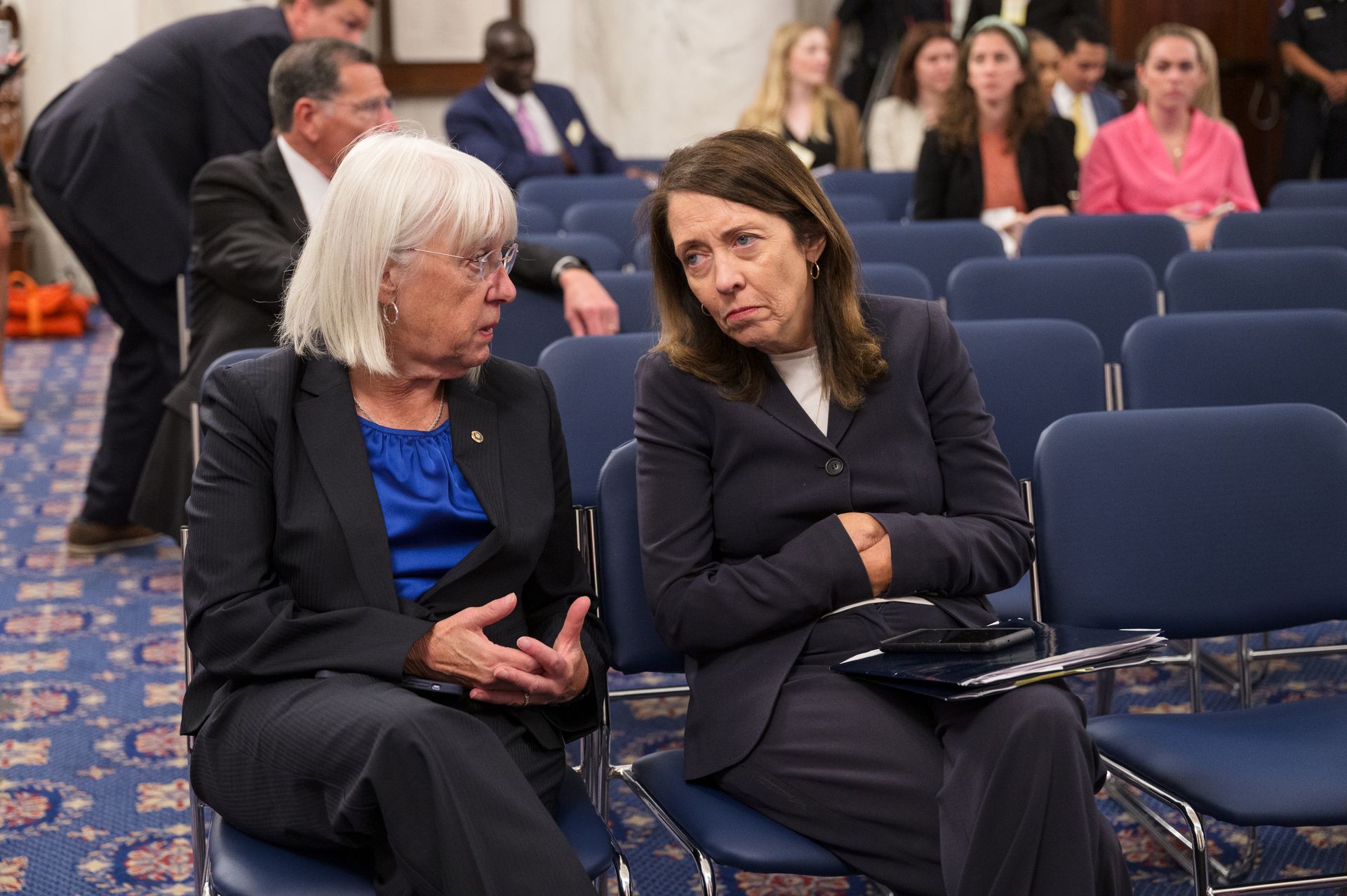Washington, D.C. – Today, U.S. Senators Patty Murray (D-WA), Chair of the Senate Appropriations Committee, and Maria Cantwell (D-WA), Chair of the Senate Committee on Commerce, Science, and Transportation, announced nearly $40 million for two important projects to boost climate resilience throughout Washington state—$20 million to create two disaster relief and community resilience hubs in Okanogan County, and $19.9 million for the Yakama Nation for a project to reduce air pollution.
The funding comes from the Inflation Reduction Act both senators helped pass and is allocated through the Environmental Protection Agency (EPA). This funding represents the latest round of applications that have been selected on a rolling basis since the program launched in November 2023—EPA previously announced 21 selectees in July, including $19.9 million for Gonzaga to help prepare Spokane for the deadly effects of climate change.
“Washington state has long been on the frontlines of the climate crisis, and communities across our state are grappling with increasingly severe fire seasons and wildfire smoke, unpredictable weather patterns, and the warming of our rivers and seas, among other things,” said Senator Murray. “Investing in climate resiliency is the smart thing to do—it not only saves money, but saves lives, and protects people from much worse health outcomes down the road. The Inflation Reduction Act Democrats passed was the biggest climate bill in U.S. history and a major step forward in the fight against climate change—I’m glad to see these resources going out to important projects in Washington state that will help keep residents safe and ensure our communities are prepared to handle the effects of a changing climate.”
“This funding will improve Okanogan County’s disaster readiness and response in the face of growing wildfire threats, ensuring Okanogan communities have access to shelter facilities and a resilient food network in the case of emergencies,” said Senator Cantwell about the funding awarded to the Okanogan County Community Action Council.
“This $19 million investment will help the Yakama Nation participate in the forest products economy of the future—allowing them to manufacture mass timber products while improving forest health and preventing wildfires on 3,000 acres of their lands,” said Senator Cantwell about the funding awarded to the Confederated Tribes and Bands of the Yakama Nation.
The following projects in Washington state received funding:
$20,000,000 for the Okanogan County Community Action Council to support two Microgrid Community Resilience hubs to help protect communities in rural Eastern Washington from pollution and severe weather events while expanding climate resiliency programs and education. The programs running out of these facilities will also support workforce development and improve food security for Okanogan County residents. Senator Murray wrote a letter of support for this project to EPA Administrator Regan in November. The two community resiliency hubs are:
- “The Center” in Omak will serve as a disaster relief center during extreme heat, wildfire, and flooding events—which occur in the county nearly every year. The Center will otherwise be a one-stop shop for social services that help address the needs of vulnerable residents. It will provide workforce training for energy conservation and house a weatherization shop that will help ramp up local home weatherization efforts and expand residential solar, as well as a construction training program to aid the county in rehabilitating aging homes and ensuring the health and safety of vulnerable residents, including older adults and people with disabilities.
- “The Food Hub” will house Okanogan County’s food bank and distribution center, which supports nine food pantries across the country. The food bank provides food assistance to 11,000 county residents annually. The project will feature solar panels, batteries, and ventilation for temperature control. It will also include a new market-style pantry for the Okanogan Food Panty, which will reduce food waste and improve the experience of the approximately 300 people who rely on the pantry every week.
$19,983,378 for the Confederated Tribes and Bands of the Yakama Nation to pilot advanced conservation harvest and wildfire prevention techniques on 3,000 acres of ancestral Yakama forest. The Yakama Nation’s Fire and the Built Environment project will also construct a new Yakama mass timber facility to manufacture mass timber panels and build a prototype of a carbon-sequestering mass timber affordable housing unit and longhouse for the Yakama people. Overall, this project will help lessen the impacts of pollution on the Yakama Nation and within the Yakima Valley.
The Community Change Grants Program, launched in November of 2023, directed approximately $2 billion dollars this year from the Inflation Reduction Act funds to environmental and climate justice activities to benefit disadvantaged communities. These projects reduce pollution, increase community climate resilience, and build capacity to address environmental and climate justice challenges.
Senator Murray has been a consistent advocate for climate resilience and readiness programs, and as Chair of the Senate Appropriations Committee, she secured key funding in the fiscal year 2024 spending bills for climate resilience efforts—from supporting wildfire suppression to investing in Tribal climate programs—and successfully fought off drastic cuts to core environmental and conservation departments and programs pushed by Congressional Republicans.
Senators Murray and Cantwell strongly supported and helped pass the Bipartisan Infrastructure Law and the Inflation Reduction Act, both of which made historic and wide-ranging investments to tackle climate change and boost climate resilience.
###


